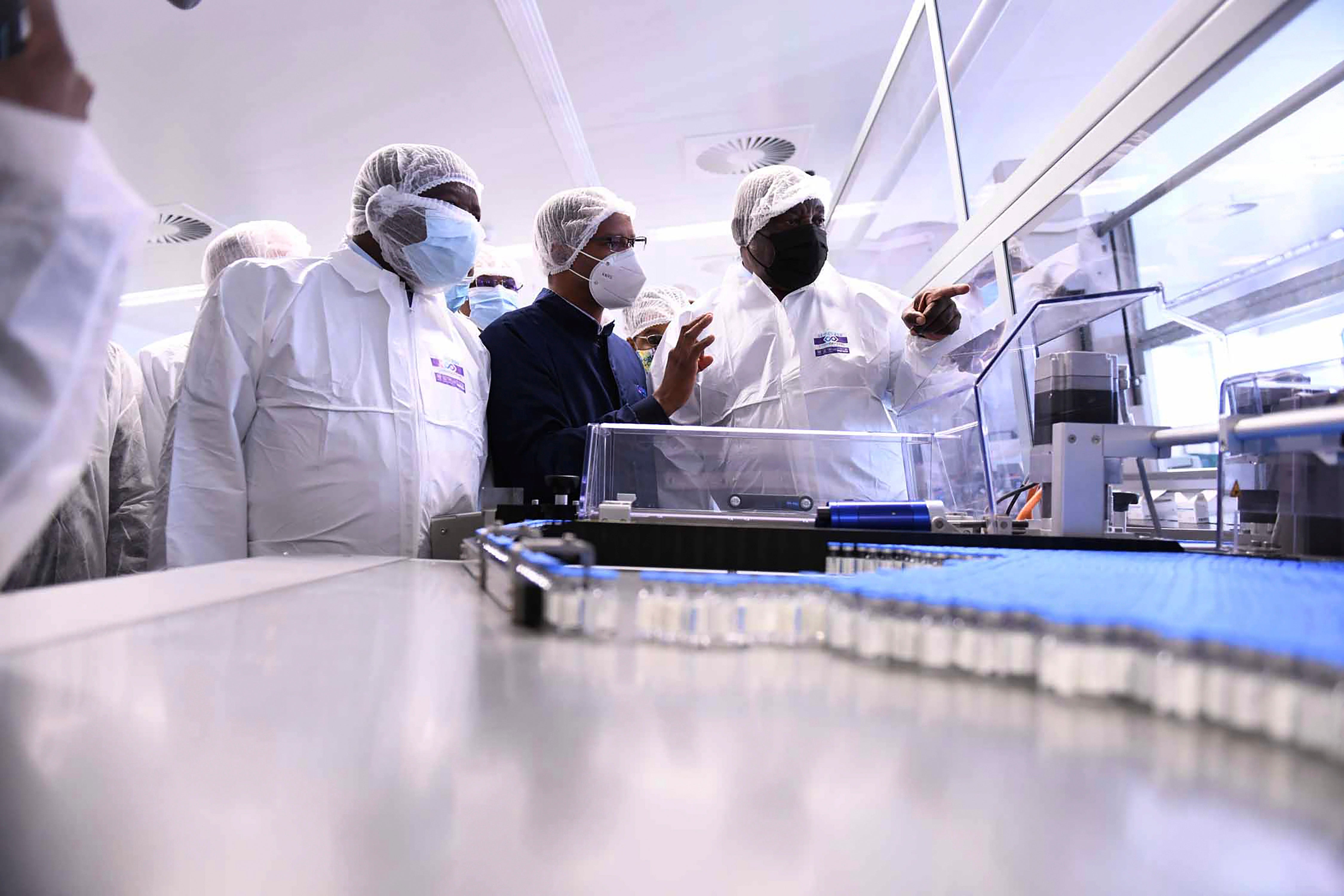South African activists slam J&J for exporting vaccines
Health activists in Africa have slammed Johnson & Johnson for exporting vaccines produced in South Africa to countries in Europe, which have already immunized a large proportion of their populations and often have a surplus of vaccines

Your support helps us to tell the story
From reproductive rights to climate change to Big Tech, The Independent is on the ground when the story is developing. Whether it's investigating the financials of Elon Musk's pro-Trump PAC or producing our latest documentary, 'The A Word', which shines a light on the American women fighting for reproductive rights, we know how important it is to parse out the facts from the messaging.
At such a critical moment in US history, we need reporters on the ground. Your donation allows us to keep sending journalists to speak to both sides of the story.
The Independent is trusted by Americans across the entire political spectrum. And unlike many other quality news outlets, we choose not to lock Americans out of our reporting and analysis with paywalls. We believe quality journalism should be available to everyone, paid for by those who can afford it.
Your support makes all the difference.Health activists in Africa have slammed Johnson & Johnson for exporting vaccines produced in South Africa to countries in Europe which have already immunized large numbers of their people and have even donated vaccines to more needy countries.
The one-dose J&J vaccines were exported from South Africa, where they had been assembled, despite the pressing need for vaccines across Africa, where less than 3% of the continent's 1.3 billion people have been fully vaccinated.
The South African activists on Tuesday called for a full disclosure of the South African government’s contracts with Johnson & Johnson and other vaccine manufacturers and threatened legal action to get the information. At a press briefing on Tuesday, they reacted to revelations by The New York Times that millions of J&J doses produced by Aspen Pharmacare in the South African city of Gqeberha (formerly Port Elizabeth) are being exported to Europe.
The report also claims the South African government agreed to waive its right to ban exports to make sure that Johnson & Johnson could ship the vaccines abroad.
Aspen, a South African drug manufacturer, has a contract with Johnson & Johnson to assemble the ingredients of its COVID-19 vaccine, put it in vials and package it, a process called “fill and finish.” It was the first agreement for COVID-19 vaccines to be finished in Africa and was hailed by the African Union and the South African government as a boost for vaccine production and distribution in the continent.
The Aspen factory has the capacity to finish about 220 million J&J doses annually.
“We believe that the conduct of Johnson & Johnson has been scandalous, immoral and unconstitutional,” Fatima Hassan of the Health Justice Initiative, an advocacy group in South Africa, said Tuesday.
The organization has already filed a request under South Africa’s Promotion of Access to Information Act to get access to the contracts, she said.
South Africa has vaccinated more than 2.1 million people with the J&J vaccine and has purchased 31 million doses of the vaccine, which are being delivered in large shipments from overseas and from the South African manufacturing plant. The rollout of the J&J vaccines has been delayed by delivery disruptions.
Overall South Africa has given at least one vaccination does to more than 9.7 million people and is currently administering about 200,000 shots per day.
Moses Muluba, from the Center for Health, Human Rights and Development in Uganda, said the distribution of vaccines produced in Africa to Europe shows glaring global inequity in the distribution of vaccines.
“In a country like Uganda where we have 44 million people, we have not even reached a target of 4 million vaccinations. Only 1.7 million have been vaccinated, but we cannot find vaccines in the market," he said.
The vast majority of the world's COVID-19 vaccine supply has already been bought up by rich countries including the U.S., Canada and the European Union. While many of those countries have pledged to donate millions of vaccines to African countries, most of them won't be delivered this year. And many are now planning booster shots for their own people.
“In this case, what does global solidarity mean? Vaccines made in South Africa were supposed to boost distribution to countries like ours, but that has not happened,” Muluba said.
___
AP journalists Maria Cheng in London and Andrew Meldrum in Johannesburg contributed.